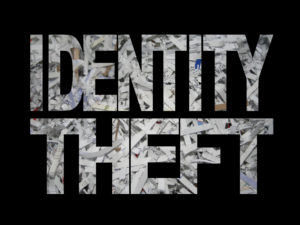
In an era defined by technological advancements for both good and bad behavior, personal financial security and data privacy have become significant concerns for individuals of all ages.
However, older adults face unique challenges and vulnerabilities in safeguarding their financial well-being and sensitive personal information if they want to avoid being victims of fraud.
Under the umbrella of Elder Fraud, people in older age groups find themselves navigating a rapidly changing landscape that is unlike anything they have seen in their long lives. This article sheds light on the critical importance of personal financial security and data privacy, highlighting the risks posed by the increasing reliance on technology and the internet, and delving into the new tactics employed by criminals targeting this vulnerable demographic.
Phone scams targeting the elderly.
Phone and telemarketing scams have been around a lot longer than the internet. Two of the most common types of scams that disproportionately affect this demographic are IRS impersonation and lottery scams.
In IRS impersonation scams, fraudsters pose as representatives of the Internal Revenue Service, exploiting the fear of legal consequences to extort money from victims. Lottery scams, on the other hand, promise significant winnings but require an upfront fee or personal information, preying on the hopes and dreams of unsuspecting seniors.
Scammers have many creative ways to fool and steal from seniors.
One of the most prevalent tactics of elder financial abuse is creating a sense of urgency. Scammers convey imminent threats, such as arrest or legal action, to pressure victims into immediate compliance. This urgency leaves little time for rational thinking or fact-checking, increasing the likelihood of victimization.
Intimidation is another frequently employed tactic, where scammers resort to aggressive and intimidating language to instill fear in their targets. This psychological manipulation can cause older adults to make hasty decisions without considering the consequences, making them more susceptible to financial exploitation.
A recent article on CNBC.com highlighted a relatively new type of scam called a tech support scam. The scam was conducted over the phone by a person the victim thought was a trusted advisor from her bank. The person convinced her to wire her entire life savings into cryptocurrency.
You are not defenseless when it comes to phone scams. Read more about how to guard against phone scams in an article SDD wrote recently.
Online scams facing the elderly.
Elderly individuals face a multitude of online risks, including phishing emails, social engineering and as mentioned earlier, tech support scams.
Phishing emails are deceptive messages that appear legitimate but are designed to trick recipients into revealing personal information or clicking on malicious links. A good example of phishing are Medicare scams:
- Scammers send emails that appear to be from a Medicare or healthcare provider, often with official-looking logos and graphics. The email typically claims that the recipient’s Medicare information needs to be updated, verified, or renewed.
- It urges the recipient to click on a link to a fake website that mimics the official Medicare website. The fake website prompts the victim to enter sensitive information such as their Social Security number, Medicare ID, credit card number and banking details.
- Once the information is entered, scammers use it for identity theft, fraudulent Medicare claims or financial fraud.
Social engineering involves manipulation tactics where scammers exploit trust and emotions to obtain sensitive data. These common online risks prey on the unfamiliarity of older adults with digital technology, making them particularly susceptible to fraudulent schemes. Grandparent scams are particularly dangerous for older adults:
- Scammers typically initiate this scam with a phone call, but they may follow up with phishing emails. In the phone call, the scammer poses as the victim’s grandchild or a law enforcement officer. The scammer claims that the grandchild is in trouble, such as being arrested, involved in an accident or stranded in a foreign country.
- They use emotional manipulation to make the victim feel urgent concern for their grandchild’s safety. The victim is then asked to send money quickly to help their grandchild, usually via wire transfer or gift cards.
- Subsequent phishing emails may be sent to request additional funds or personal information.
Tech support scams often combine email and phone to steal money or information:
- Victims may receive an email that appears to be from a well-known technology company, such as Microsoft or Apple. The email may claim that there is a security issue with the recipient’s computer or software that requires immediate attention.
- The email instructs the recipient to click on a link or call a provided phone number for tech support assistance.
- When victims follow the instructions, they are directed to a fake tech support website or call center. Scammers then gain remote access to the victim’s computer, often demanding payment for unnecessary services or selling fake antivirus software.
It’s essential for older individuals and their caregivers to be aware of these scams, verify the authenticity of communications, and never provide sensitive information or send money without confirming the legitimacy of the request.
In-person scams remain one of the most common forms of fraud for older adults.
In an age dominated by digital threats, in-person scams, such as door-to-door schemes and fake contractors, continue to pose significant risks to the elderly population. These scams can lead to severe financial losses and emotional distress. Therefore, it is crucial for seniors and their families to be vigilant and proactive in safeguarding their interests.
Face-to-Face Scams: A Closer Look
Two of the most common types of face-to-face scams involve door-to-door scams and fake contractors.
Door-to-door scams typically involve individuals posing as salespeople or service providers, offering products or services that seem appealing. These scammers often use high-pressure tactics to convince elderly homeowners to make quick decisions.
Fake contractors, on the other hand, offer home improvement or repair services that are either subpar or entirely nonexistent. They approach seniors and promise to fix roofs, driveways or perform other home improvements at a seemingly attractive price. Once the payment is made, these individuals either disappear without completing the work or do a substandard job, leaving seniors with both a financial loss and unfinished projects.
The Importance of Verifying Service Providers
Verifying the identity and legitimacy of service providers is paramount for elderly individuals and their families. Here are some essential steps to take:
- Ask for Identification: Always ask for identification and credentials from anyone claiming to be a salesperson, contractor or service provider. Legitimate professionals should be willing and able to provide this information.
- Check References: When hiring contractors for home improvement projects, seek references and reviews from past customers. Reputable professionals should have a history of satisfied clients.
- Get Multiple Quotes: Don’t rush into decisions. Obtain multiple quotes for any significant services or repairs and compare them to ensure you’re getting a fair deal.
- Consult Trusted Sources: Consult trusted sources, such as the Better Business Bureau or local consumer protection agencies, to verify the credibility of the company or individual you’re dealing with.
- Take Your Time: Avoid making hasty decisions. Scammers often use high-pressure tactics to push for immediate action. Take your time to evaluate the situation and gather information before committing.
- Involve a Trusted Advisor: If you have doubts or concerns, involve a trusted friend or family member in the decision-making process. A second opinion can help prevent impulsive actions.
By taking these precautions, older adults can significantly reduce the risk of falling victim to in-person scams. Additionally, family members and caregivers should also play a proactive role in educating their loved ones about these risks.
Low digital literacy makes older adults vulnerable to fraud and scams.
As technology continues to advance at an unprecedented pace, many seniors find themselves grappling with a lack of technological knowledge, which can make them susceptible to exploitation and scams.
Enhancing Digital Literacy Among Older Adults
There are various resources available to help older individuals improve their digital skills and become more comfortable with technology. Here are some resources to consider:
1. Local Community Centers and Libraries:
- Many community centers and libraries offer older adults digital literacy classes and workshops to cover fundamental topics such as using computers, smartphones, email, social media and internet safety.
- Libraries may also provide access to computers and the internet, allowing older adults to practice their skills.
2. Online Tutorials and Courses:
- Several online platforms offer free or affordable courses on digital literacy and technology use.
- Websites like Coursera, edX, and Khan Academy provide a wide range of technology-related courses.
- YouTube hosts numerous tutorial videos created by tech enthusiasts and educators.
3. SeniorNet:
- SeniorNet is a nonprofit organization dedicated to helping older adults enhance their digital literacy.
- It offers classes, workshops and resources specifically designed for seniors.
- SeniorNet centers can be found in various locations, providing in-person and online training.
4. AARP’s Technology Education:
- AARP (American Association of Retired Persons) offers online resources, articles and guides to help older adults navigate the digital world.
- It provides information on smartphones, tablets, online safety and social media.
5. Local Senior Organizations and Clubs:
- Local senior organizations, clubs and senior living communities often organize tech-related events and classes.
- These organizations may provide a supportive and social environment for older adults to learn and practice digital skills.
6. Tech-Savvy Family Members and Friends:
- Family members or friends who are tech-savvy can provide one-on-one guidance and support.
- They can help older adults set up devices, use apps and troubleshoot common issues.
7. Manufacturer and Retailer Support:
- Companies that manufacture devices often provide customer support resources, including online guides, FAQs (frequently asked questions) and user manuals.
- Some retailers, such as Apple Stores, offer free workshops and assistance for customers using their products.
8. Smartphone Apps:
- There are smartphone apps designed to help older people learn digital skills. For example, apps like “AARP Now” offer news, information and resources on technology topics.
- Educational apps like Duolingo and Lumosity can also help with cognitive skills and language learning.
9. Tech-Savvy Volunteer Organizations:
- Some volunteer organizations, like “Cyber-Seniors,” connect tech-savvy young volunteers with older adults who want to improve their digital literacy.
- These volunteers can offer personalized assistance and answer questions.
10. Online Safety Resources:
- It’s crucial to educate older Americans about elder financial exploitation. Resources like the Federal Trade Commission’s (FTC) “Pass It On” campaign provide tips and information about avoiding scams and protecting personal information online.
Remember that learning digital skills is a gradual process and patience is key. Older adults should start with basic concepts and gradually build their knowledge and confidence over time. Having access to supportive resources and individuals who can provide guidance and encouragement can greatly enhance their digital literacy.
There are many practical ways to support and educate seniors about fraud.
The risks from phone scams, online threats, in-person scams and limited digital literacy can have immediate and devastating consequences for seniors.
Here’s the bottom line: taking action is non-negotiable. Consider these actions if you have elderly family members, friends and neighbors who will welcome your help:
- Stay Informed: Keep yourself informed about the latest scams and threats that target older adults. Knowledge is your first line of defense.
- Open Communication: Have open, honest conversations with your older loved ones about these risks. Encourage them to share any suspicious encounters or solicitations they receive.
- Support Digital Literacy: If you’re tech-savvy, offer to provide patient, one-on-one guidance to the older adults in your life. Help them learn essential digital skills and navigate the online world.
- Verify and Educate: Teach older individuals to verify the legitimacy of any unsolicited phone calls, emails or doorstep solicitations. Remind them never to share sensitive information with unknown parties.
- Community Resources: Look into local resources, such as senior centers, libraries, and workshops that offer practical assistance and education.
- Monitor Bank Accounts: Regularly review the financial institutions’ statements and accounts of elderly family members and friends to check for irregularities or suspicious transactions.
- Power of Attorney: Consider establishing a power of attorney or legal guardianship if cognitive decline is a concern. This provides a legal framework for managing their financial decision-making.
- Family Involvement: Encourage family involvement in the financial affairs of elderly loved ones. Collective efforts often yield the best results.
- Be Patient and Supportive: Understand that adapting to the digital age can be challenging for older individuals. Be patient, supportive and available to help them.
- Stay Vigilant: Finally, stay vigilant and remain proactive. Scammers are persistent and creative, so ongoing awareness and action are essential.
In the end, practicality and vigilance are the key to safeguarding older adults.
 How to Protect Yourself from ID Theft and Scams This Holiday Season and Beyond
How to Protect Yourself from ID Theft and Scams This Holiday Season and Beyond  Secure Online Shopping is 90% Common Sense.
Secure Online Shopping is 90% Common Sense.  Take Control of Your Personal Information to Avoid Identity Theft
Take Control of Your Personal Information to Avoid Identity Theft 

